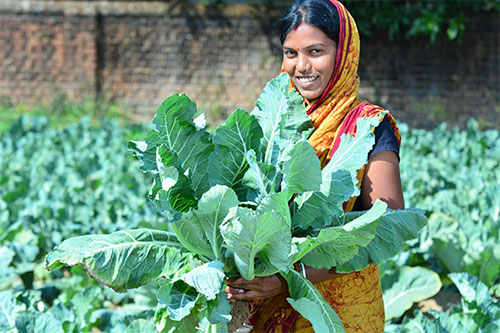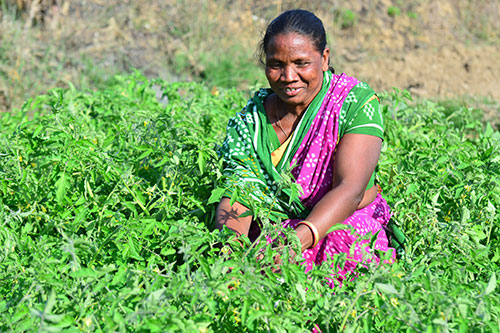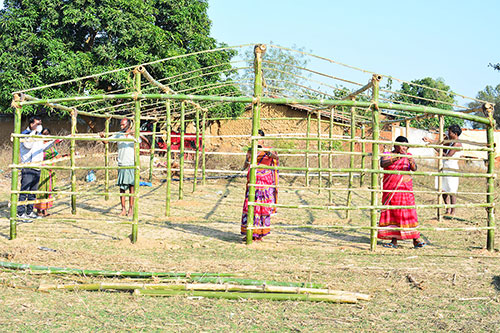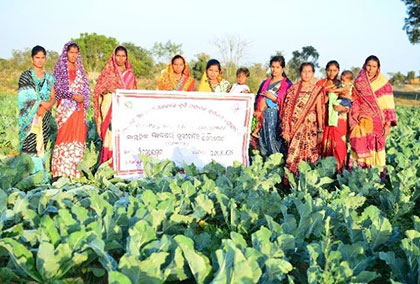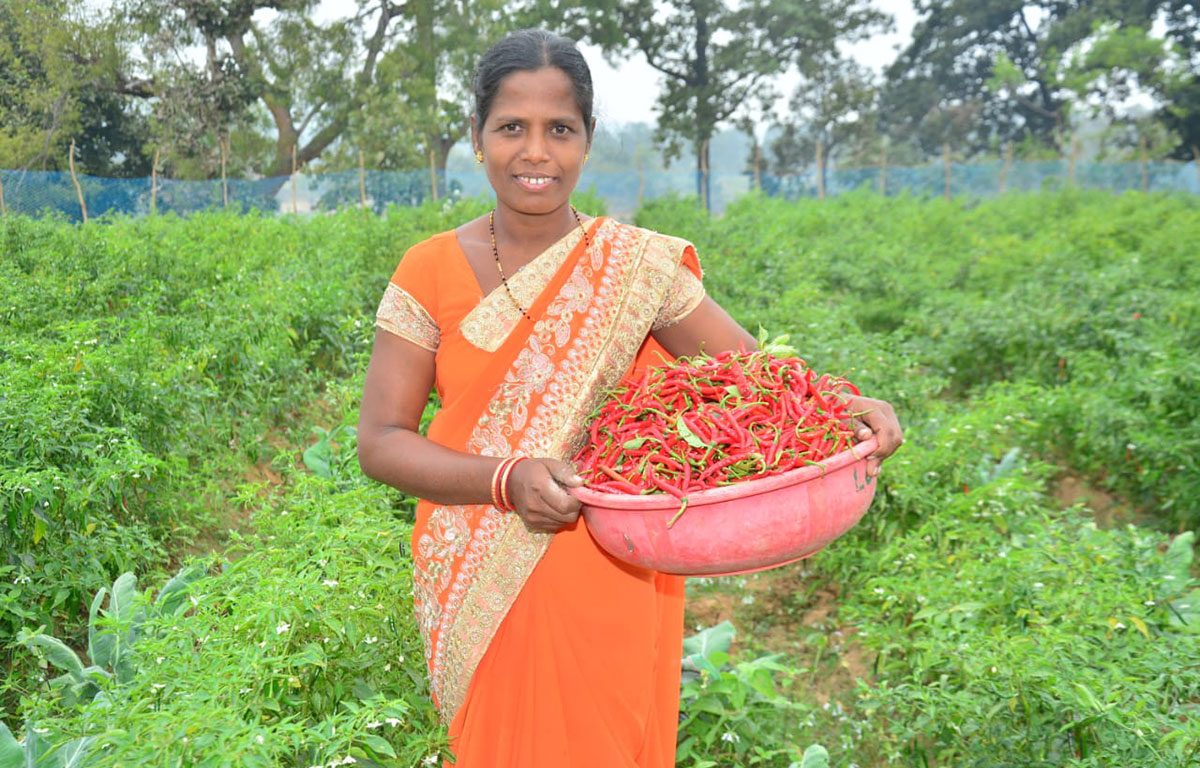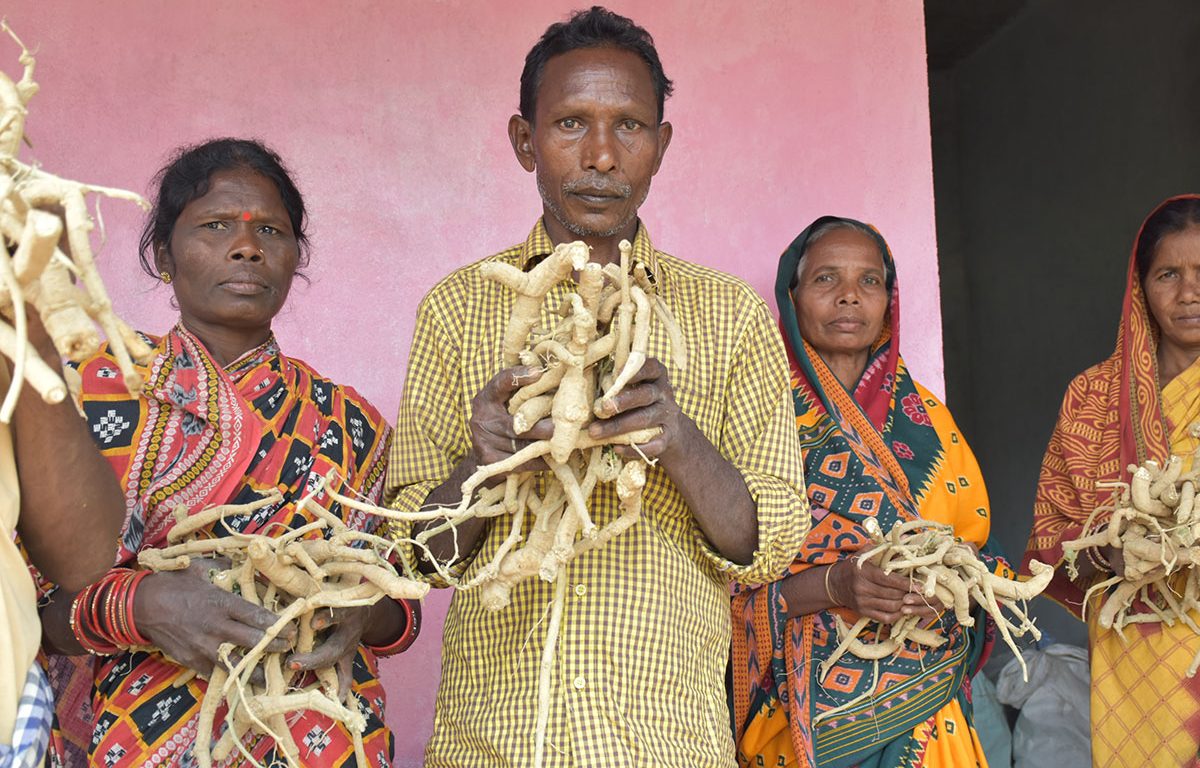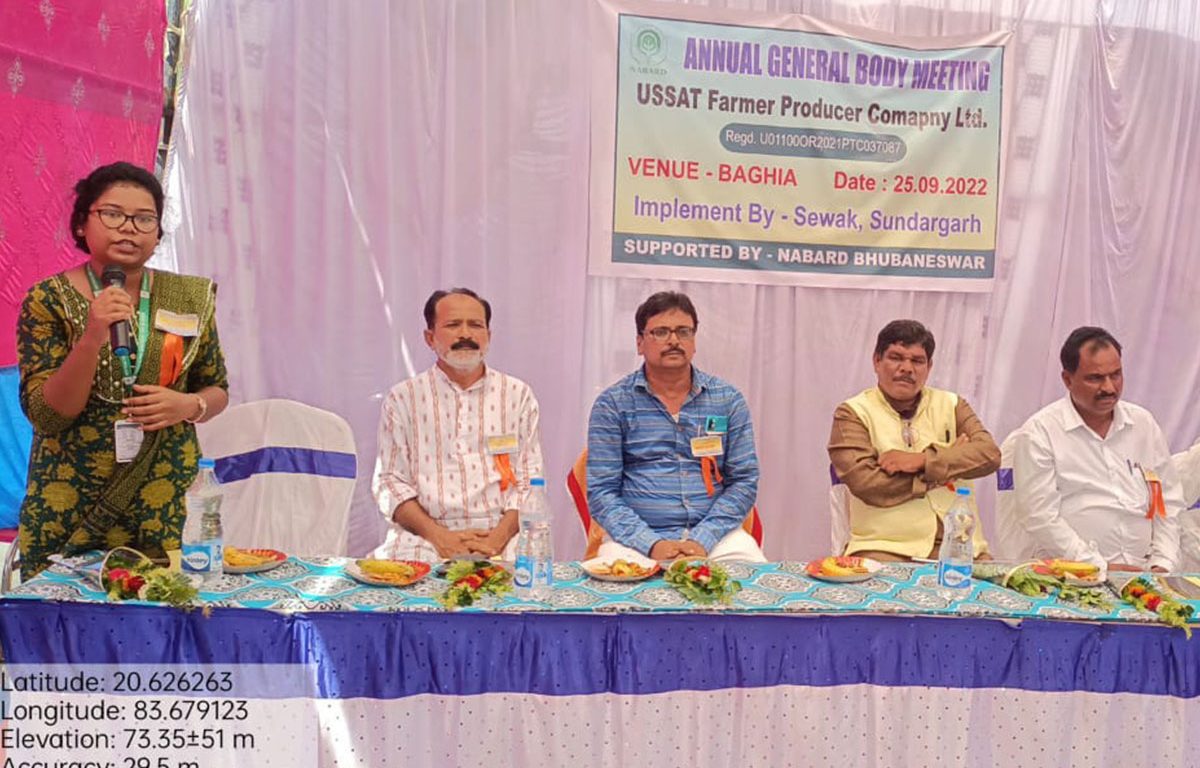To Most People It’s Dirt. To The Farmer It’s Potential
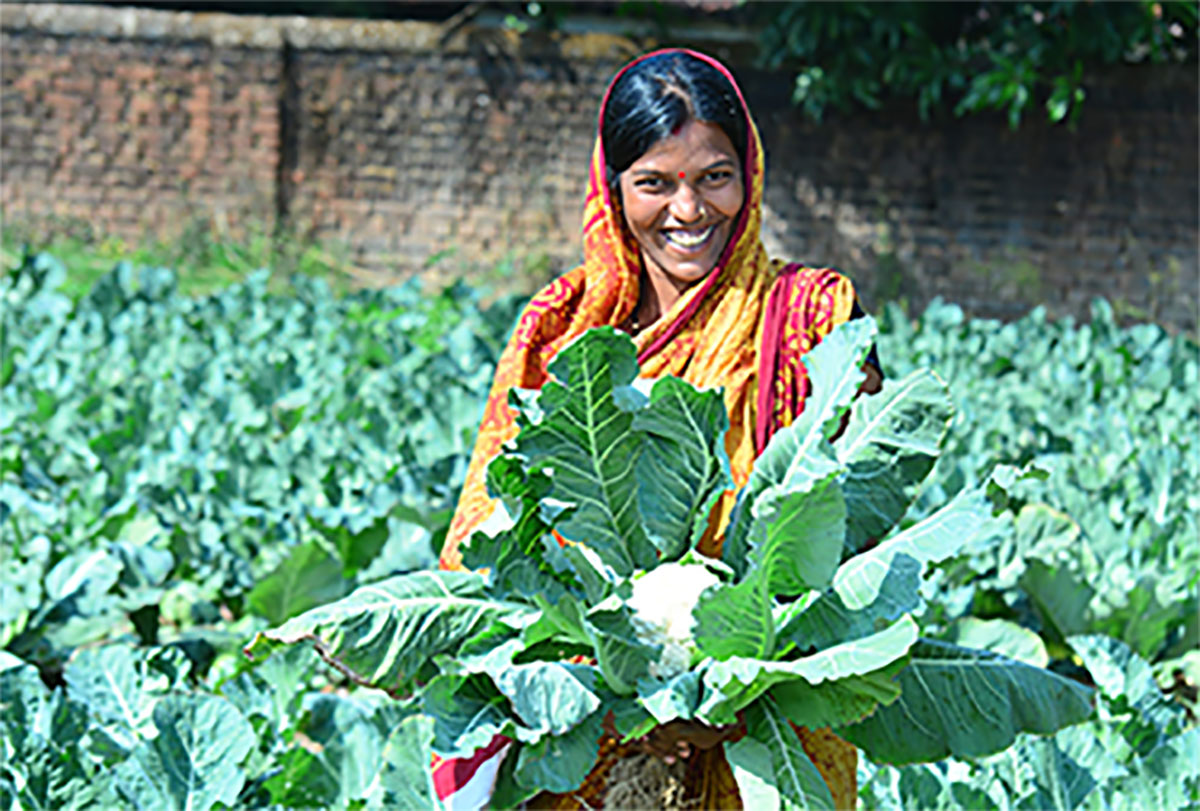
Social And Cultural Background
The APC (Agriculture Production Cluster) project, initiated by SEWAK in Athmallik on August 1, 2021, has brought about significant improvements in the agricultural landscape of the region. Covering a total of 6 Gram Panchayats and 59 villages, this project has been instrumental in bridging the gap between farmers and government departments.Prior to the inception of the APC project three years ago, farmers in the area were engaged in traditional farming practices without much awareness about government schemes and modern agricultural techniques.
However, with the implementation of APC, farmers have gained access to valuable information and resources.One notable improvement has been in the distribution of subsidies for crops like marigold, onion, potato, mustard, garlic, and kitchen garden seeds. These subsidies have enabled farmers to adopt new crops and enhance their productivity without facing financial constraints.Furthermore, the APC project has addressed challenges related to post-harvest management and introduced farmers to the concept of mushroom farming.
Through collaborative efforts and teamwork, these hurdles have been effectively overcome, empowering farmers with the knowledge and skills needed for sustainable agricultural practices.Overall, the APC project has played a vital role in uplifting the agricultural sector in Athmallik, empowering farmers with resources, knowledge, and support to improve their livelihoods and enhance agricultural productivity.
Situation (Then and Now)
The socio-economic landscape of Athmallik presents a diverse range of income levels among its population, reflecting both the challenges and opportunities in the agricultural sector.Approximately 50% of the population falls under the Below Poverty Line (BPL) category, indicating a significant portion of the community faces financial hardships and struggles to meet basic needs.On the other hand, there is a notable segment comprising 20% of the population who earn substantial incomes ranging from 4 to 5 lakh per month through farm allied activities.
This group represents a thriving sector of the community, leveraging agricultural opportunities to achieve higher economic prosperity.Another 30% of the population relies on a combination of farm and livestock-related earnings, averaging around 2 to 3 lakh per annum. While this group may not enjoy the same level of financial abundance as the first, they contribute significantly to the local economy through their agricultural endeavors.Despite the presence of relatively well-off segments within the community, it is evident that there remains a considerable portion of the population struggling with poverty and limited resources.
This underscores the importance of continued efforts by initiatives like the APC to support and uplift all farmers, regardless of their socio-economic status.By addressing the needs of both affluent and marginalized farmers, the APC can strive towards creating a more inclusive and equitable agricultural ecosystem in Athmallik, ensuring that the benefits of agricultural development reach all segments of the population.
Economic Situation
Athmallik’s socio-economic spectrum reveals stark contrasts: 50% below the poverty line, 20% earning 4 to 5 lakh monthly from agriculture, and 30% earning 2 to 3 lakh annually from both farming and livestock. Despite prosperous segments, significant poverty persists. Continued APC efforts are crucial to ensure equitable support for all farmers, fostering inclusive agricultural development in the community.
Awarness Level
Farmers, initially unaware of ongoing schemes, benefited from the APC project’s proactive approach. Within the first 6 months, APC conducted at least 3 meetings in each village, effectively raising awareness about project goals, roles, and future benefits for farmers.
Problem / Complication
With a majority of farmers belonging to the Below Poverty Line (BPL), their reliance on government support is significant. However, a trust deficit exists between farmers and organizations, hindering participation in Producer Groups, even with a nominal fee of 200 rupees. The APC project prioritizes resolving these issues, recognizing the paramount importance of addressing farmer concerns and fostering trust to ensure effective collaboration and support.
History of Organisations and Activities
SEWAK is a grass root level organization native to sundargarh standing tall and high for the rural community of Western Odisha established in 1995. Major activities include to educate Rural and Tribal communities, Health, Governance and Livelihood, Child Rights and Education.
Aims and Objectives of The Project
The project’s primary goal is to double farmers’ income through comprehensive on-field and off-field support. Targeting 1000 acres, with 40% dedicated to organic farming, it aims to train and expose 3000 farmers to beneficial practices, thereby enhancing their income and promoting sustainable agriculture.
Skill and Devlopement Activites
SEWAK Athmallik’s APC Project organizes monthly training programs for committee members, including Presidents, Secretaries, and Udyogi Mitra of all Producer Groups. These sessions cover a range of agricultural interventions, including mushroom cultivation, seed treatment, NPM techniques, root seedling, tissue culture, mulching, intercropping, and crop rotation. Equipped with these skills, farmers can effectively implement innovative practices on their fields.
Evaluation and Inspection In Econmic Status
The APC Project implemented a comprehensive household data collection plan through surveys conducted by our CRP and CC at the grassroots level. This format provides valuable insights into income sources, household assets, family members, and land details. Surveys are repeated every three months to track changes in economic status and assess the effectiveness of interventions.
AFTER INTERVENTION
Intial Changes
Farmers got knew about the modern Farming practices and other issues has also been resolved. Cost of cultivation reduced and Pesticide consumption also reduced to some extent.
Social Change
Yes after APC project introduced in Athmallik an impact can be seen on famer’s body language, we had overcome the trust issue complication by building a good repo. They are become optimistic for the next kharif month.
Rate of Success And Failure
In each steps of life there is chance of win or lose. During the beginning Phase of APC project we faced a lot of issues to adjust ourselves. But we still keep on working hard and achieved the target what we desired before. Tentatively we can say the rate of success is 75% and the rest 25% are failure but in upcoming time, we are committed to bounce back stronger.
Innovation
As APC project had taken some innovative steps for bringing the farmers to the modern farming. APC SEWAK Athmallik team proposed a MARIGOLD farming in a PG which later proven as MODEL PG for whole Angul District. Also crop like Banana, Lemon grass, Garlic and leafy vegetable has been initiated through crop diversification.
Market Linkage
Market linkage are done in Angul, Dhenkanal, and Sambalpur for ground nut, Marigold, onion, potato and other vegetable. We also have planned to market our product through support of FPO which runs by SEWAK.
Conclusion
The APC Project already in it’s 2nd half of the year working for strengthening rural community by providing them all technical /non-technical support.











